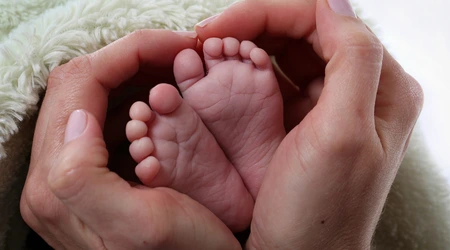Muhammad Tops England’s Baby Name List, Reflecting Cultural Shifts

Muhammad Tops England’s Baby Name List, a headline that resonates with profound implications for the United Kingdom’s cultural landscape in 2025.
This shift, confirmed by the Office for National Statistics (ONS) for 2023, marks a historic moment: the name Muhammad, rooted in Islamic tradition, has surpassed longstanding favorites like Noah and Oliver.
Far from a mere statistic, this change reflects a dynamic interplay of demographics, migration, and evolving identities.
It’s a story of how names carry weight culturally, religiously, and socially serving as a lens into Britain’s past, present, and future. Why does a name matter so much?
Let’s explore this transformation, unpacking its layers with clarity and curiosity, while grounding our discussion in facts and thoughtful analysis.
Names are more than labels; they’re cultural artifacts, signposts of heritage and aspiration.
The rise of Muhammad signals a Britain that’s increasingly diverse, shaped by decades of immigration and global interconnectedness.
Yet, this milestone also sparks debate, stirring questions about integration, identity, and the nation’s trajectory.
In this article, we’ll delve into the forces behind this naming trend, its societal implications, and what it reveals about the UK’s evolving ethos.
From demographic shifts to cultural resonance, we’ll navigate this topic with nuance, avoiding sensationalism while embracing the complexity of a changing nation.
The Data Behind the Trend
In 2023, Muhammad Tops England’s Baby Name List with 4,661 boys registered, outpacing Noah (4,382) and Oliver (3,556), per ONS data.
This marks the first time the single spelling “Muhammad” claimed the top spot, though its variants Mohammed (1,601) and Mohammad (835) also rank high.
++ Brexit Legacy Fuels Labor Shortages in Tourism and Hospitality
Combined, these names total 7,097, dwarfing other popular choices. This isn’t a sudden leap; Muhammad has lingered in the top 10 since 2016, climbing steadily as the Muslim population grows.
| Name | Registrations (2023) | Rank |
|---|---|---|
| Muhammad | 4,661 | 1 |
| Noah | 4,382 | 2 |
| Oliver | 3,556 | 3 |
| Mohammed | 1,601 | 28 |
| Mohammad | 835 | 68 |
The numbers tell a clear story: Muhammad’s rise reflects demographic realities.
The UK’s Muslim population, estimated at 6.7% in 2021 (ONS), is younger and has higher birth rates than the national average.
For example, 46% of Bangladeshis and 44.8% of Pakistanis are under 24, compared to 26.6% of White British (X post, April 2025).
This youthful demographic fuels naming trends, with Muhammad a name honoring the Prophet of Islam holding deep spiritual significance.
Beyond raw numbers, the trend highlights consistency. Unlike faddish names tied to pop culture, Muhammad’s appeal endures across generations.
Its variants, though spelled differently, share a unified cultural root, amplifying its presence. This isn’t just a statistic; it’s a snapshot of a community’s values and visibility in modern Britain.
Also read: New Electronic Travel Authorization (ETA) Rules for EU Visitors Take Effect
A Name Steeped in Significance

For Muslim parents, naming a child Muhammad is a deliberate act of faith and identity.
The name, meaning “praised” or “praiseworthy,” embodies virtues like compassion and wisdom, drawn from the Prophet’s legacy.
In a diverse UK, choosing Muhammad Tops England’s Baby Name List becomes a way to anchor heritage amid rapid societal change.
It’s a bridge between personal belief and public identity, especially for second- and third-generation immigrants.
Consider a hypothetical family in Birmingham: Ayesha and Imran, both British-born of Pakistani descent, name their son Muhammad.
For them, it’s not just tradition; it’s a statement of belonging, blending their Islamic roots with their British lives.
This resonates widely names like Muhammad carry emotional weight, offering continuity in a globalized world.
Unlike trendy names like Reign or Psalm, inspired by celebrities, Muhammad’s appeal is timeless, rooted in reverence.
The name’s prominence also reflects visibility of Muslim figures. Athletes like Mo Farah and Mohamed Salah, or even historical icons like Muhammad Ali, have elevated its cultural cachet (Medium, Dec 2024).
These role models make Muhammad feel both aspirational and accessible, encouraging parents to choose it.
Yet, this choice isn’t without scrutiny, as it sparks discussions about integration and cultural cohesion.
The broader context matters too. In 2025, Britain’s multicultural fabric is undeniable 3,000+ mosques, Muslim mayors, and even the King hosting Iftar (X post, April 2025).
Muhammad’s rise isn’t an isolated phenomenon; it’s part of a larger tapestry where diversity shapes public life.
This evolution, while celebrated by many, also prompts questions about the balance between heritage and shared national identity.
Demographic Shifts and Cultural Currents
The ascent of Muhammad Tops England’s Baby Name List mirrors demographic transformation. Post-World War II migration, particularly from South Asia, has reshaped Britain.
The 1960s saw Pakistani and Bangladeshi communities grow, followed by Middle Eastern and African diasporas.
By 2021, 56% of births were to White British mothers, down from 74% in 2001 (X post, Dec 2024). This shift underpins Muhammad’s popularity, as Muslim communities expand.
Urban centers like London, Bradford, and Manchester amplify this trend. In these areas, Muslim populations are concentrated, and cultural practices, including naming, thrive.
For instance, in Tower Hamlets, where 39% of residents are Muslim, Muhammad has topped local lists for years.
This geographic clustering reinforces the name’s dominance, reflecting community cohesion and cultural pride.
Yet, demographics alone don’t explain everything.
The decline of traditional names George, Harry, Camilla signals a broader move away from royal or Anglo-centric conventions (Free Press Journal, Dec 2024).
Parents today, regardless of background, seek names with personal meaning. Muhammad fits this mold, blending spiritual depth with global resonance, unlike names tied to fleeting pop culture trends.
This shift isn’t without tension. Some view Muhammad’s rise as a sign of “replacement,” a term used in heated X posts (Dec 2024). Such rhetoric oversimplifies a complex reality.
Britain’s identity has always evolved think of Norman, Viking, or Huguenot influences centuries ago.
Muhammad’s popularity is less a rupture, more a continuation of that adaptive spirit, though it challenges notions of a monolithic “Britishness.”
Navigating Identity and Integration
The spotlight on Muhammad Tops England’s Baby Name List ignites debates about integration. Does a name signal allegiance or division?
For many, Muhammad is a celebration of identity, not a rejection of Britishness.
Young Muhammads grow up with dual fluency navigating mosques and Premier League matches, Eid and Christmas markets. Their name doesn’t preclude belonging; it enriches it.
Still, perceptions matter. In 2025, anti-immigration sentiment lingers, fueled by economic pressures and political rhetoric.
Names like Muhammad can become lightning rods, unfairly tied to fears of cultural erosion.
A 2023 study by the Runnymede Trust found 49% of Britons felt immigration strained social cohesion, though most valued diversity.
This ambivalence shapes how Muhammad’s rise is received celebrated by some, questioned by others.
Imagine a school in Leeds: a teacher calls out “Muhammad” during roll call, and three boys respond.
This everyday scene normalizes the name, yet for some, it symbolizes change too rapid to process. The challenge lies in fostering dialogue that embraces diversity without dismissing concerns.
Muhammad’s popularity could bridge divides, showing how shared spaces schools, workplaces blend identities organically.
Integration isn’t a one-way street. As Britain diversifies, institutions adapt. Schools now offer halal meals; workplaces accommodate Ramadan.
Muhammad’s rise reflects this mutual evolution, where cultural exchange strengthens, not fractures, society.
The name’s prominence invites reflection: can Britain redefine itself as a mosaic, not a monolith?
The Broader Cultural Canvas
Beyond religion or demographics, Muhammad Tops England’s Baby Name List taps into a global naming trend.
Parents worldwide favor names with cross-cultural appeal think Aria, Ayaan, or Leila (HuffPost, Jan 2025). Muhammad fits this pattern, pronounceable in multiple languages, carrying universal values.
It’s a name that “travels lightly,” to borrow a phrase from naming expert Sophie Kihm.
Pop culture also plays a role. While Olivia, the top girls’ name, draws from Shakespearean elegance, Muhammad benefits from real-world icons.
Salah’s goals, Farah’s medals these moments make the name aspirational. Compare this to names like Saint or Stormi, tied to transient celebrity trends.
Muhammad’s staying power lies in its depth, not fleeting fame.
This trend extends beyond Britain. In Germany, Mohammed ranks high; in France, it’s gaining ground. Global migration and cultural exchange make such names universal.
Britain’s experience is a microcosm of this shift, where names reflect a world less bound by borders. Yet, this globalism can feel disorienting, prompting calls to preserve “traditional” names.
The analogy of a river fits here: Britain’s cultural stream has always been fed by tributaries Celtic, Roman, Anglo-Saxon, now South Asian and beyond.
Muhammad’s rise is a new current, reshaping the river’s course without erasing its essence. This perspective tempers fears, framing change as enrichment, not loss.
Looking Ahead: What’s Next?

As Muhammad Tops England’s Baby Name List, what does the future hold? If demographic trends persist, Muhammad may dominate for years.
The ONS projects the Muslim population could reach 13% by 2050, driven by higher birth rates and migration.
Names like Muhammad will likely remain fixtures, alongside emerging diverse names like Amara or Zayn.
This trajectory challenges Britain to redefine “normal.” Schools, media, and workplaces will reflect this diversity, from more Muhammads in classrooms to leadership roles.
The name’s ubiquity could normalize multicultural identities, reducing stigma. Yet, it also demands proactive inclusion policies that celebrate diversity while fostering unity.
The conversation must evolve too. Rather than divisive rhetoric, Britain needs narratives that embrace complexity.
Muhammad’s rise isn’t a threat; it’s a reality to engage with. By 2050, a Muhammad might be prime minister, a scientist, or a footballer.
Their name will be as British as John or William once was.
The broader naming landscape will diversify further. Names inspired by nature (Autumn, River) or global cultures (Sana, Kai) are rising (HuffPost, Jan 2025).
Muhammad’s success paves the way, showing parents value meaning over convention. This shift could redefine British identity as pluralistic, dynamic, and forward-looking.
Conclusion: A Name, A Nation, A New Chapter
The story of Muhammad Tops England’s Baby Name List is more than a statistic; it’s a window into Britain’s soul in 2025.
It reflects a nation grappling with change, embracing diversity, and redefining itself.
From demographic shifts to cultural pride, Muhammad’s rise encapsulates a Britain that’s both rooted and evolving.
This isn’t about replacement it’s about expansion, where new identities enrich the old.
Names carry stories, and Muhammad’s tells one of faith, resilience, and belonging. As Britain navigates this era, the challenge is to see change as opportunity.
A name atop a list isn’t just a trend; it’s a call to build a future where every Muhammad, Noah, or Olivia thrives. Let’s write that chapter together, with open minds and fearless hearts.
Frequently Asked Questions
Why has Muhammad become the most popular baby name?
It reflects the growing Muslim population, cultural pride, and the name’s timeless spiritual significance, amplified by prominent figures like Mohamed Salah.
Does this trend indicate a decline in British identity?
No, it shows an evolving identity. Britain has always absorbed diverse influences, and Muhammad’s rise enriches, not erases, its cultural tapestry.
How do naming trends reflect societal changes?
Names mirror demographics, values, and global influences. Muhammad’s popularity highlights diversity, while declining royal names suggest a shift from tradition.
Will Muhammad remain the top name?
Likely, given demographic trends. The ONS projects a growing Muslim population, ensuring Muhammad’s prominence alongside other diverse names.
